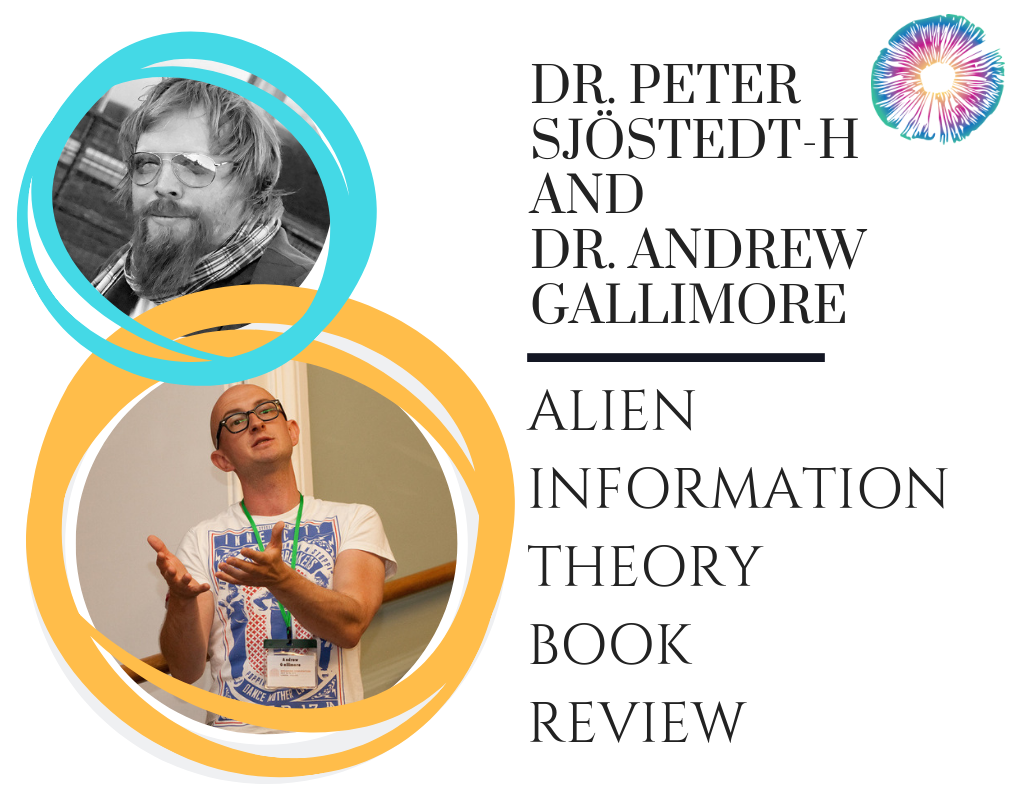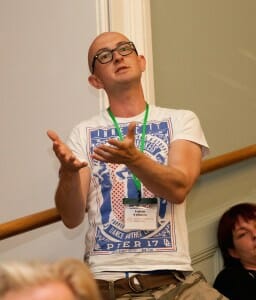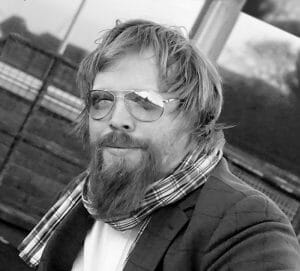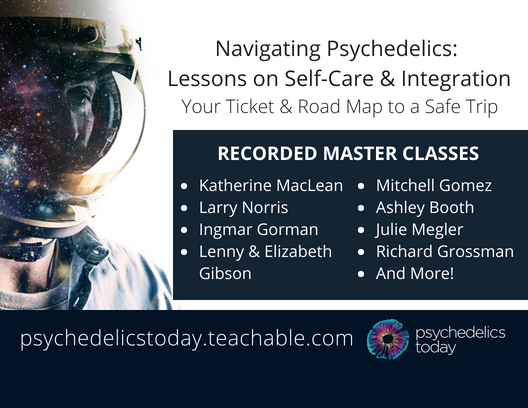
Spiritual
Dr. Peter Sjöstedt-H and Dr. Andrew Gallimore – Alien Information Theory Book Review
September 3, 2019
In this unique episode, Dr. Peter Sjöstedt-H joins together in conversation with Dr. Andrew Gallimore, Author of Alien Information Theory: Psychedelic Drug Technologies and the Cosmic Game. In the show, these two Englishmen discuss Peter’s critique of Dr. Gallimore’s recent book.

In this unique episode, Dr. Peter Sjöstedt-H joins together in conversation with Dr. Andrew Gallimore, Author of Alien Information Theory: Psychedelic Drug Technologies and the Cosmic Game. In the show, these two Englishmen discuss Peter’s critique of Dr. Gallimore’s recent book.
3 Key Points:
- Dr. Andrew Gallimore’s recent book, Alien Information Theory: Psychedelic Drug Technologies and the Cosmic Game, explains how DMT provides the secret to the very structure of our reality.
- Based on a recently published review of Andrew’s book, Dr. Peter Sjöstedt-H sifts through and confronts Andrew’s idea that DMT allows one access to, and existence in a hyperspatial world.
- They discuss Peter’s critique, covering topics on information, consciousness, dimensions, dreams and theory.
Support the show
- Patreon
- Leave us a review on iTunes
- Share us with your friends – favorite podcast, etc
- Join our Facebook group – Psychedelics Today group – Find the others and create community.
Navigating Psychedelics
Trip Journal Integration Workbook

Show Notes
Peter’s review on Alien Information Theory
- Peter mentions 3 ‘problems’
- The first problem is a critique on what information is
- The second point regards consciousness
- The third point talks about dimensions and theories
Information
- The first problem Peter states says that the originality of the work pushes the ideas further toward art and further away from truth
- Andrew says he is a fan of making things a work of art, and he says at the start of the book that it isn’t something scientific
- In philosophy it’s called speculative metaphysics
- “It’s cliche isn’t it, that science fiction eventually becomes science fact.” – Peter
- Minkowski Space Time, the theory that Einstein supports, HG Wells wrote about a half a century before Minkowski wrote about it
- Peter says that a person could be defined by a set of numbers, weight, height, age, etc.
- Andrew says that the information is the electron, and how it interacts with other information
- How do we know that there is not more to anything than that which we can know about it?
- How matter creates/is mind is a mystery
Consciousness
- Peter asks, ‘does information at a high level produce subjectivity?’
- Andrew says consciousness is fundamental
- Panpsychism holds a distinction between an aggregate and a hold-on
- Andrew says that integrated information is consciousness
- Information doesn’t emerge from consciousness, information actually is consciousness
- Andrew says that he is an idealist, he thinks that the world is structured
- Peter says that information always has to be about something
- Andrew disagrees and says that information is substantiated
- You could say, the fundamental digits of our reality are ran by an ‘alien computer’, the physics completely different than our understanding of reality
- Andrew says that the absolute self is not only aware of itself, its aware that it is aware of itself
- He also says that these ideas are all musings, all things he has thought about as possibilities
- Peter asks Andrew if he thinks brains are required for consciousness
- Andrew says, consciousness is not a property of matter, it is an organization of things
Dimensions and Theories
- Andrew says we don’t need senses to experience other worlds
- The DMT experience is not mind dependent, it shows another reality
- When you’re dreaming, it’s independent of the sensory experience, but its not entirely independent of the waking world
- “The dream state is informed by the waking state.” – Andrew
- Peter asks, ‘If the brain creates dreams, why does the brain not create the DMT world?’
- “We know how the brain learns to construct worlds, but we don’t know how the brain learns to construct DMT worlds.” – Andrew
- When looking at a machine elf, is he equally as able to deny his consciousness as we are able to?
Final Thoughts
- Peter concludes that Andrew is a Realist/Panthiest
- Peter and Andrew think that they don’t disagree with each other, but Peter believes Andrew would have to go into extremely deep detail on all of his points in his book, and the book is thick enough as it is
- Peter agrees Andrew’s book is a great narrative for mapping the DMT space
- Andrew likes to think of it as computational idealism
Links
Alien Information Theory: Psychedelic Drug Technologies and the Cosmic Game
About Dr. Andrew Gallimore

Dr. Andrew Gallimore is a computational neurobiologist, pharmacologist, chemist, and writer who has been interested in the neural basis of psychedelic drug action for many years and is the author of a number of articles and research papers on the powerful psychedelic drug, N,N-dimethyltryptamine (DMT), as well as the book Alien Information Theory: Psychedelic Drug Technologies and the Cosmic Game (April 2019). He recently collaborated with DMT pioneer Dr. Rick Strassman, author of DMT: The Spirit Molecule, to develop a pharmacokinetic model of DMT as the basis of a target-controlled intravenous infusion protocol for extended journeys in DMT space. His current interests focus on DMT as a tool for gating access to extradimensional realities and how this can be understood in terms of the neuroscience of information. He currently lives and works in Japan.
About Dr. Peter Sjöstedt-H

Dr Peter Sjöstedt-H is an Anglo-Scandinavian philosopher of mind and a metaphysician who specializes in the thought of Whitehead and Nietzsche, and in fields pertaining to panpsychism and altered states of sentience. Following his degree in Continental Philosophy at the University of Warwick, he became a Philosophy lecturer in London for six years and has now passed his PhD (on ‘Pansentient Monism’, examined by Galen Strawson and Joel Krueger) at the University of Exeter, where he also teaches philosophy modules and writing skills. He is now to become a postdoc fellow of the university. Peter is the author of Noumenautics , the TEDx Talker on ‘psychedelics and consciousness‘, and he is inspiration to the inhuman philosopher Marvel Superhero, Karnak.



